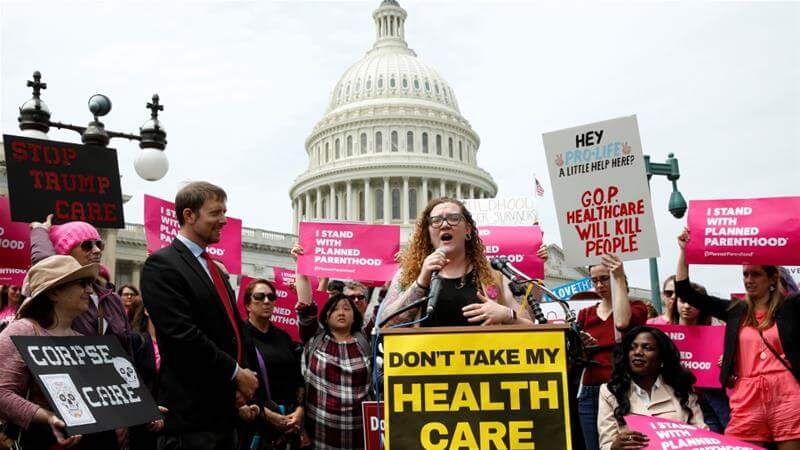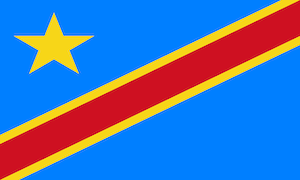July 17, 2017

Photo: Yuri Gripas/Reuters

July 12th, marked the one year anniversary of the murder of leading political activist and government critic Kem Ley. Colleagues and friends Cambodians held memorial services in Phnom Penh and elsewhere to pay tribute to his courageous investigative journalism and service to truth. Other observers reiterated their concerns about the inadequacy of the criminal investigation and the suspect claims of Oeuth Ang, who was sentenced to life in prison for the murderer, that he acted alone. Phil Robertson, the head of Human Rights Watch- Asia, reports that at least 160 NGO’s from around the globe continue to demand that Cambodia establish an independent and impartial commission of inquiry, in line with the UN Principles of Effective Prevention and Investigation of Extralegal, Arbitrary and Summary Executions.
In a darkly ironic twist, on the very same date, the Cambodia government issued a new bill which prohibits political parties from being affiliated with convicted criminals, a move many observers have described as another covert attempt to stifle political opposition. Considering that many opposition members and outspoken critics of the government have already been convicted for breaking some of Cambodia´s more recent laws which curtail freedom of expression, the bill will surely impact the leadership of the opposition and its efficacy in the 2018 general election campaign.

The DRC’s president, Joseph Kabila, might once be trying to prolong his mandate. Although elections were initially announced in December, his electoral commission now mentions that holding the elections in 2017 might “not be possible” due to voter registration, and that voting might be postponed for next year. Opposition leader Felix Tshisekedi responded that, with this declaration, Kabila “had declared war on the Congolese people”. The current president has been accused of violating the DRC’s constitution by being in power for more than two terms.
As the violent conflict within the country continues, the U.N. identified 38 more mass graves in Congo’s Kasai region, bringing the total to at least 80 such graves since the outbreak of the insurrection last August. The Congolese government blamed the Kamuina Nsapu militia for the graves, yet witnesses claim they saw army trucks dumping bodies in these graves. In an effort to help the people of Congo, the EU and Canada have recently announced that they will send more humanitarian aid to the region.

US and Russia have reached agreement on a cease-fire in southwest Syria, after a meeting between Trump and Putin in Hamburg. The agreement is open-ended, with no set end date. US officials have described it is as being part of a broader US effort to lower violence in Syria. After the cease-fire agreement started, U.N. officials have confirmed that the deal was “generally holding”.
The potential defeat of ISIS sparks more and more discussions about Syria’s political future. Last week, US-backed forces advanced significantly in Raqqa, ISIS self-proclaimed capital. Moreover, the Syrian Observatory for Human Rights recently claimed that ISIS leader Abu Bakr al-Baghdadi had been killed.
Meanwhile, Syria’s Central Bank announced the introduction of a new banknote- a 2000-pound bill (worth around $4), featuring the portrait of President Bashar al-Assad on it. The note is the highest denomination yet for the Syrian pound, as the value of the currency has dropped significantly during the war. Some have called putting al-Assad’s portrait on the bill a way of reasserting his power and the authority of the state.

Looking forward to the Presidential election in 2018, Mexico’s largest political party may consider supporting a candidate from outside its own ranks, according to the party’s President Enrique Ochoa. The Institutional Revolutionary Part or PRI will decide in August whether to use non-PRI candidates for the July 2018 election, a decision that will be taken in the national assembly. The move would seek to distance PRI from a number of governors and former governors who have been caught up in corruption allegations during the Presidency of Enrique Pena Nieto. The candidate they put forward will compete against the leftist candidate Andres Manuel Lopez Obrador.

Tuesday July 11th saw Maldives President Abdulla Yameen lose his majority in parliament after 10 lawmakers from his own party defected to the opposition, before presenting an impeachment motion against Yameen’s aly, Speaker of Parliament Abdulla Maseeh Mohamed. The opposition coalition now holds 45 seats in the 85-seat parliament. Many, including exiled former leader Mohamed Nasheed, are encouraging the President, who is hoping to campaign for a second five-year term in 2018, to resign.

Robert Mugabe’s health continues to decline, having made his third visit to Singapore this year on July 7th. Many are beginning to claim that Mugabe is “running the show from his hospital bed.” His wife, Grace Mugabe, has remarked that were he to die before the next election, she would have him run as a corpse. No doubt, this presents Zimbabwe’s political future as increasingly unclear.
On July 13th, police fired tear gas and water cannon on opposition supporters from the Movement for Democratic Change (MDC). Protestors gathered on the streets of Harare in response to supposed plans written by the country’s electoral committee to ensure a victory for Mugabe in the next election.

Leopoldo López, the most prominent political prisoner in Venezuela, was released on Saturday in an unexpected move by President Maduro’s government, in a possible sign that the Maduro regime is giving into pressure after 100 days of protests and riots in the streets. López was imprisoned for three years after a demonstration in the capital of Caracas left three people dead in February 2015. The Maduro government claimed López was suffering from health concerns and that his release was a humanitarian act, although López’s political supporters say this indicates a weakening of the Maduro regime after diplomatic isolation and months of popular unrest.
On Sunday, Venezuelans will vote on whether they support the government’s plan to elect a National Constituent Assembly to overhaul the 1999 constitution. President Maduro does not recognize the legitimacy of the referendum, and intends to move forward with the July 30 vote to elect the assembly, or ANC. The opposition hopes the vote will prove the popular opposition to the ANC and pressure Maduro to drop the plan altogether, although this seems unlikely.
Oscar Pérez, the former policeman who piloted the helicopter that attacked government buildings, was seen at a vigil on Thursday mourning those killed in anti-government demonstrations. Pérez called for a general strike against the government on July 18 – calling the day “zero hour” – and urged people in Venezuela to support a symbolic vote against the government’s proposed plan to rewrite the constitution.

On July 10th 80 Americans (32 men and 48 women) were arrested whilst protesting the new healthcare bill. Protestors had gathered in the hallways and offices of both the Senate and the House, chanting slogans such as “Trumpcare=death,” “Kill the bill, don’t kill me,” and “Hey hey, ho ho, Trumpcare has got to go.” It is estimated that if passed, the bill would result in an additional 22 million people losing insurance by 2026.
In other news, over a dozen states have refused to comply with Trump’s voter commission, the equivalent of 1/3 of the population. Besides the fact that the goals of the commission remain unclear, many states are hesitant to hand over sensitive voter data, which includes social security numbers and voter history since 2005.
It was also revealed that Donald Trump Jr. met with Russian officials during his father’s campaign less than a week before the Democratic National Committee hack that exposed several thousand emails. Emin Aglarov, whose father worked with Donald Trump in 2013 to organize the Moscow Ms. Universe pageant, brokered the meeting between Trump Jr. and Russian lawyer Natalia Veselnitskaya. Supposedly, Ms. Veselnitskaya had access to damaging information on Clinton, but Trump Jr. has claimed that the meeting concerned Russian adoption.